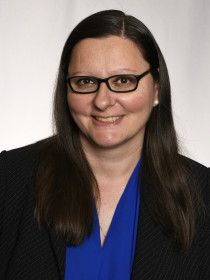
Adriana Bankston
Connect with Adriana
About Adriana
Bankston works on building a robust STEM workforce through research, training, policy and advocacy. She has worked to foster the future of U.S. science and technology by supporting the next generation of scientists in their research endeavors through non-profit organizations and scientific societies, including the National Postdoctoral Association, American Society for Cell Biology, Future of Research and Society for Neuroscience.
Contributions
The Need for Federal Support of STEM Training
In the News
Publications
Assesses the current landscape of science policy training for undergraduate students in the United States. Findings show that universities, organizations, and funding agencies should expand resources for curriculum, academic advising, training opportunities, and funding to enhance awareness and create additional science policy opportunities at the undergraduate level.
Discusses a series of reports over the past two decades that have recommended improvements to the training environments for graduate students and postdoctoral researchers in the United States, and notes that despite these recommendations, academic institutions and departments have not implemented significant changes. Outlines practical changes that academic institutions and departments can make to improve their training environments.
Focuses on the challenges faced by early career researchers (ECRs, broadly graduate students and postdocs) in establishing independent research programs in academia. Identifies the barriers ECRs experience to achieve research independence, and proposes solutions that highlight areas where training ECRs could be beneficial.
Provides insights from the 2017 National Postdoctoral Association meeting. The workshop brought together representatives with diverse perspectives on postdoctoral training to discuss strengths and challenges they faced in training postdoctoral scholars. A variety of topics were covered, including a discussion of potential partnership models for collaboration to enhance postdoctoral training.
Addresses the lack of comprehensive data on postdoctoral salaries in the biomedical workforce, and assesses actual salaries for postdocs using data gathered from US public institutions. Provides insights into the landscape of individual postdoc salaries and identifies areas where policy measures could have the greatest influence on improving postdoc compensation nationally.